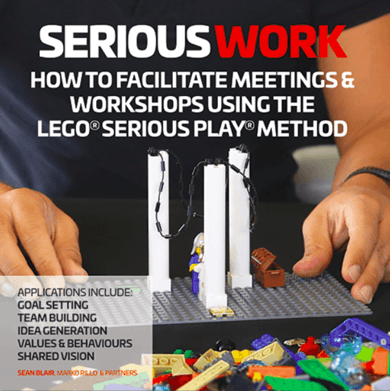Forum Replies Created
-
AuthorPosts
-
December 28, 2018 at 6:14 pm #12548
 Jamie HutchinsParticipant
Jamie HutchinsParticipantHi All,
It’s my first time in contributing to this forum, but the nature of this discussion certainly jived with my experience of attempting to bring LSP to some of my clients (and potential clients).
I’ve not read the book in question and in fact Amazon is telling me it is currently unavailable, but I think a lot can be taken from the fact that the author is a noted comedy writer, especially focused on Silicon Valley. The book is also described as a “roast”, which isn’t necessarily a tradition common across the world. That being said, one might expect that it was written in a particular manner and looked for easy targets which the general reader might associate with in order to get a laugh. Two or three years ago, before I had any real exposure to LSP (and baring in mind my typically irreverent and sarcastic sense of humor) I might have easily written it off too. I think it’s important that we keep a sense of humor even if we advocate the LSP method.
Now, a year after certification, I have failed to use LSP in any client situation and found many closed minds and closed doors where LSP would (IMHO) be perfect for the group and situation in question. I’ve been pondering on this for some time now since my experience with the LSP certification was quite profound. I have clearly not done a good job of conveying how LSP might be used and the outcomes that a potential client might expect. Equally the potential clients I’ve spoken with form opinions as soon as the word LEGO is mentioned. By contrast, does anyone ever object if you say you will use POST-IT notes as a tool during a workshop?
And here is where I start to form a hypothesis. We all come to any situation with our own biases and opinions, I conjecture that a typical initial client response to LEGO SERIOUS PLAY is an immediate focus on the tool (i.e. LEGO bricks) and perhaps childhood memories of their use, meanwhile missing the word SERIOUS, skip then to PLAY and suddenly an opinion (playing with Lego) that this has no role in “business”. Not everyone will be this way of course, but enough to make it something of an uphill battle. Add into this that often any approach can come from an HR professional, often looking for a fun ice-breaker, rather than an intensive process and methodology with diverse applications, and I think you can appreciate where some of the issues lie.
As professionals, I think it is important that we remain open to criticism and continue to develop and refine a methodology that we know works when it is given the opportunity. From the other descriptions of the book content, it seems like the author, in particular, brought considerable bias to his experience of LSP and that it might not have been particularly representative of good application or facilitation. So how do we respond and combat such opinions? Do we write them off or do we seek to improve our product and generate better evidence of success? I for one would be keen to see more concerted efforts among the LSP community to generate validated research to quantify and qualify some of the positive outcomes the method has to offer in its many applications.
If we could move from the tool brand identity to outcome identity being most prominent in people’s minds that would be a giant step forward. We live in a world where data (and big data) speaks, so perhaps we need to create and share some? Do we really achieve greater participation that others methods? Do participants enjoy and recommend LSP (is there a net promoter score)? Are there standardized measures of success that could be implemeneted from the various applications? etc. etc.
When I have a doubtful response, I typically resort to the scientific base of LSP (my own bias coming from a scientific background), but where is the applied data?
Very interested to see where this discussion could go further.
Thanks
Jamie
-
AuthorPosts

 Become a LEGO Serious Play facilitator - check one of the upcoming training events!
Become a LEGO Serious Play facilitator - check one of the upcoming training events!